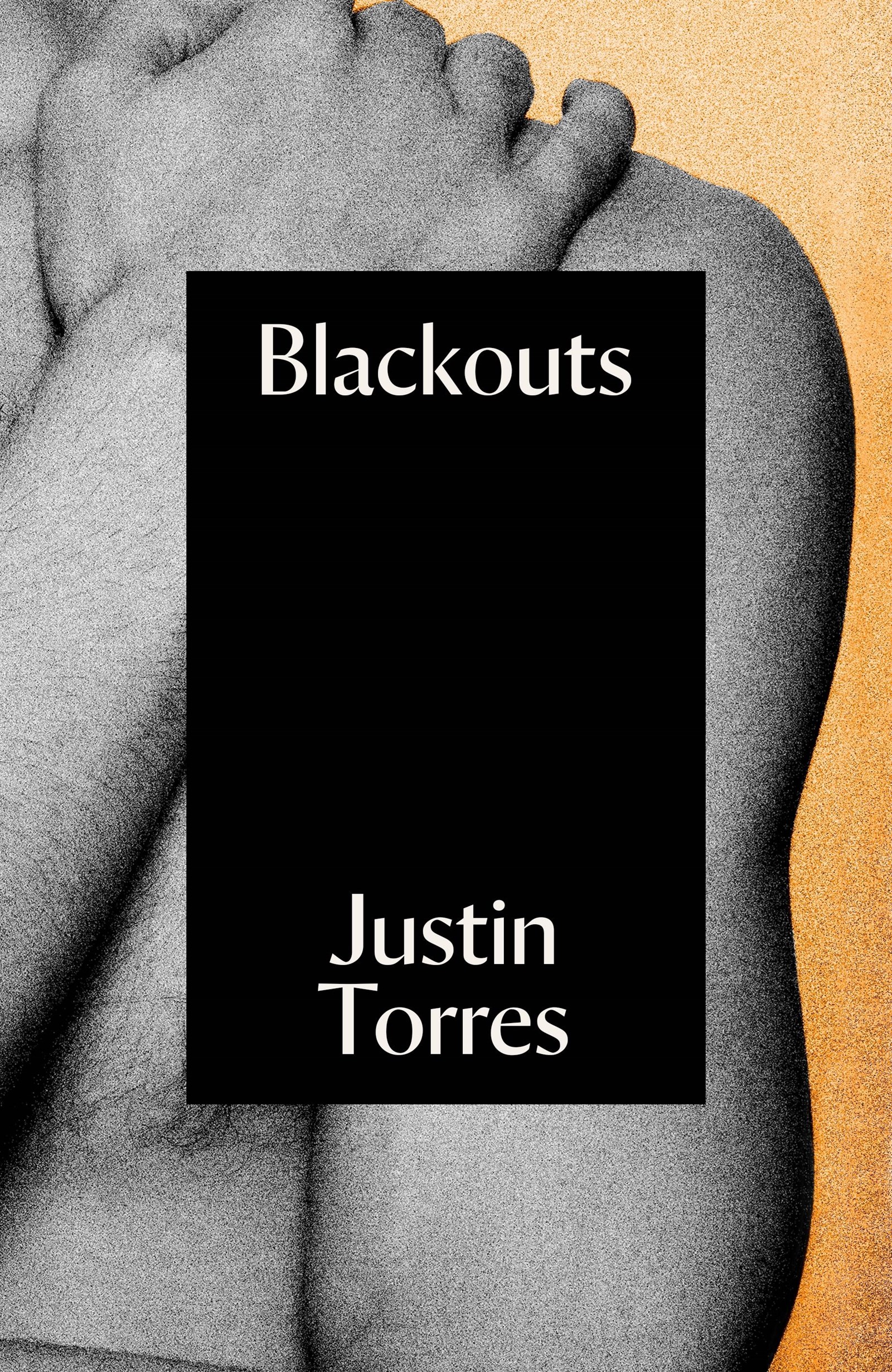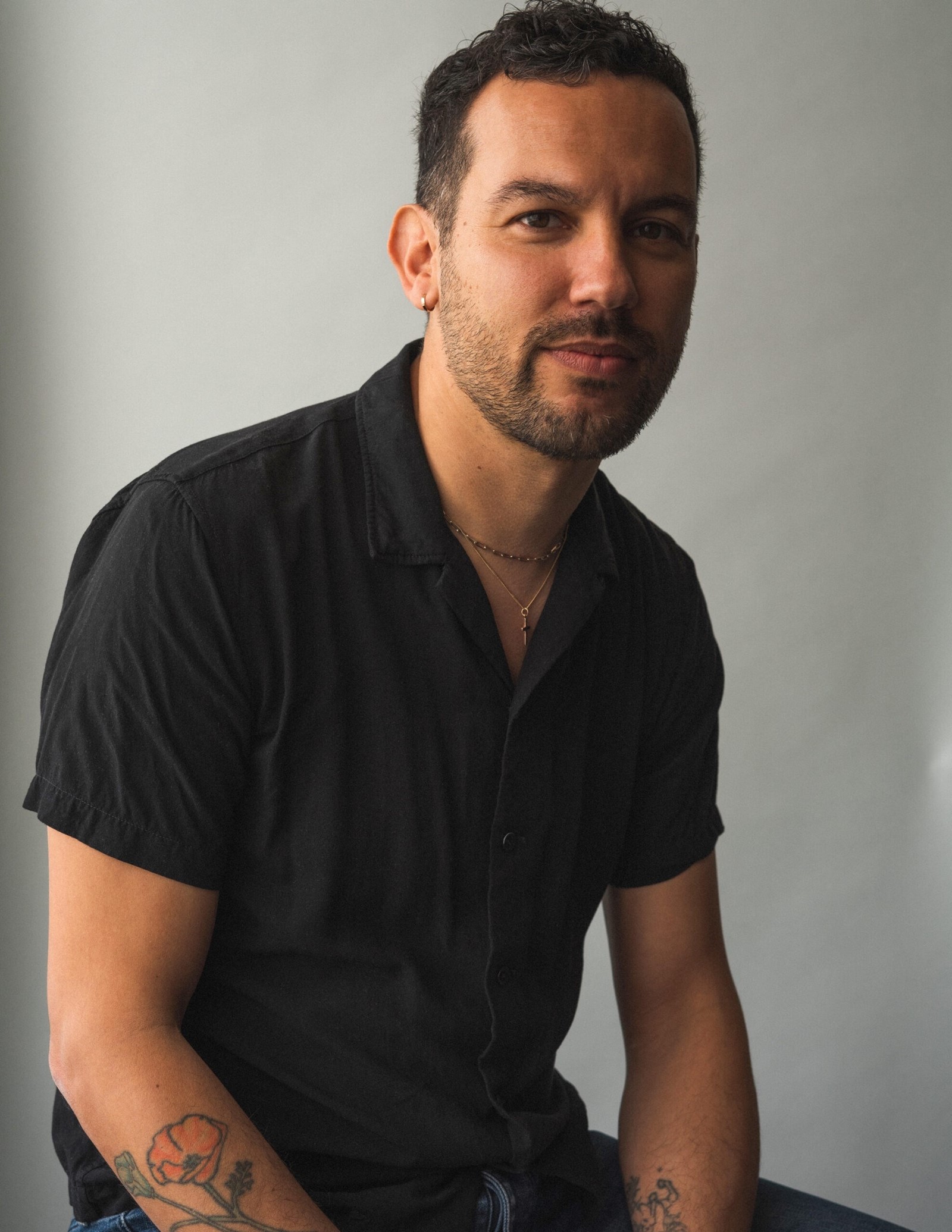In the “sort of postface” to Justin Torres’ beguiling new novel Blackouts, the story’s narrator tells us that “not all ambiguities need to be resolved”. In a way, it’s a reassuring reminder that Blackouts is supposed to pose unanswerable questions, particularly about queer history and the callous ways it can be erased.
Blackouts begins with the narrator, who is never named, arriving at a kind of ethereal queer retirement home called The Palace. It’s left to the reader to imagine where – or even if – this place might exist. There, the narrator reconnects with a much older man named Juan, whom he met at a mental health facility many years earlier. Juan acts as a kind of wise gay uncle – Torres says the word ‘mentor’ feels “too corporate” – by encouraging him to engage with their shared history: though they’re at very different life stages, they’re both queer men of Puerto Rican heritage.
Some of this history is contained in blacked-out excerpts from a real-life text: 1941’s Sex Variants: A Study of Homosexual Patterns, which Torres happened upon when he was working in a San Francisco bookstore. Torres, who previously wrote the deeply evocative semi-autobiographical novel We the Animals, uses these excerpts to re-eroticise the neutered study and ruminate on the life of Jay Gay, the lesbian researcher who started it before having it snatched away. The end result is poignant and provocative, surreal and seductive, and very, very queer.
“My number one goal is to pique curiosity,” Torres says over Zoom. “I mean, the highest compliment I’ve gotten from anybody who’s read the book is that they put it down to start Googling.” To that end, Blackouts concludes with what are billed as “blinkered endnotes” supplying tantalising details about things mentioned in the book. “They’re fictional, in that they’re from the perspective of the narrator,” Torres explains. “But there’s a lot of factuality in there. They’re a great jumping off place if you want to go down some of these rabbit holes.”
Or if you prefer, Torres says you can “sit with the ambiguity” in his remarkable book and “just enjoy it”.

Nick Levine: What lies at the core of the relationship between Juan and the narrator? Is the intergenerational sharing of queer history part of the pull?
Justin Torres: Absolutely. There’s this sweet kind of grandfatherly exchange of history between them. Like, Juan is saying: “You should have a connection to your various lineages.” It’s a very sweet and loving dynamic, but it was forged in a mental institution under very intense circumstances, so they became close very quickly. In the grand scheme of things, they don’t really know each other that well.
But also, there’s something very erotic and charged between them. The narrator really gets a kick out of turning Juan on. Juan’s interest in the narrator has to do with seeing something of himself in this young man and wanting to look after him because he seems lost. But another kernel of [Juan’s interest] is the fact the narrator is a younger gay man and Juan is an older gay man. They’re not boning – Juan is very old and dying – but there is something sexy about their relationship. They’re both kind of getting off on it.
NL: Was it important for the story to have this kind of nuanced sexual charge? Because historically, queer men have often been reduced to a particular sex act, or portrayed in an almost neutered way.
JT: Yeah, it was really important to me. You know, there are a lot of penises in the book as well as hand-drawn images of vulvas. In some of these images, people are literally being reduced to their sex parts because scientists were looking for ‘evidence’ of homosexuality in their bodies. And then some of the images are kind of hot – like the one of the hustler.
I guess it was important to emphasise the sex and the sexuality – like, to not clean that up in any way. And when you emphasise that, it can obviously lead to people being reduced to their body parts and sex acts, which is why Jan Gay absolutely hated the Sex Variants study in the end. The other impulse – to make everything a very cuddly, YA version of queer history – that worries me. I read a lot of queer things and think, “Is this queer enough? Is it too de-sexed?” And maybe some people would have that critique about my book, but I definitely tried to push my writing to get the sex in there. I don’t want to write anything that’s too palatable.
“The other impulse – to make everything a very cuddly, YA version of queer history – that worries me. I read a lot of queer things and think, ‘Is this queer enough? Is it too de-sexed?’” – Justin Torres
NL: When you first happened upon the Sex Variants study, what fascinated you so much about Jan Gay?
JT: It’s funny, because the only time she’s mentioned in the Sex Variants study is in the introduction; it’s just one line saying she was “instrumental”. And I was just like, “Who is Miss Jan Gay? Like, was her last name actually Gay?” And so I tried to find out everything I could about her, which was really difficult. There wasn’t really anything until I found these two academic books on medical history and deviant studies which kind of tell the story, in the text but mainly in the footnotes, of how this entire project was her idea.
And that launched me into finding out even more about her. Like, the fact that she and her partner changed their names at the same time to Jan Gay and Zhenya Gay fascinated me. That was so bold in the 1920s. And then they co-wrote all these children’s books together but because their [chosen first] name names were kind of gender-ambiguous, no one would have any real idea what their relationship was. They could have been brother and sister.
Everything about Jan Gay continued to amaze me. I mean, she founded a nudist colony and made a film about nudity. No historical figure is perfect – she held some attitudes that reflect the era she was born in, but she was an incredible activist. She really understood that getting queer stories out in the world would change public attitudes. And what happened to her is really tragic, because she was so devastated by the final result of this study that began with her research.
NL: Do you think part of the thrill of discovering queer history lies in the fact it isn’t handed to us on a plate?
JT: I mean, that’s one of the things I was thinking about when I was putting together the structure of the book. Erasure is intriguing at the same time as it's frustrating, and it’s also very provoking. When you find out a little tidbit of queer history, you’re like “that’s incredible!” There’s a real joy there, but you also think, like, “It’s insane how much [more] I know about the mainstream history that’s been fed to me my whole life.” So there’s a frustration in discovering queer history that’s experienced alongside a kind of titillation. And that’s the line I’m trying to walk with Blackouts; it’s like edgeplay.”
Blackouts by Justin Torres is published by Granta and is out now.
